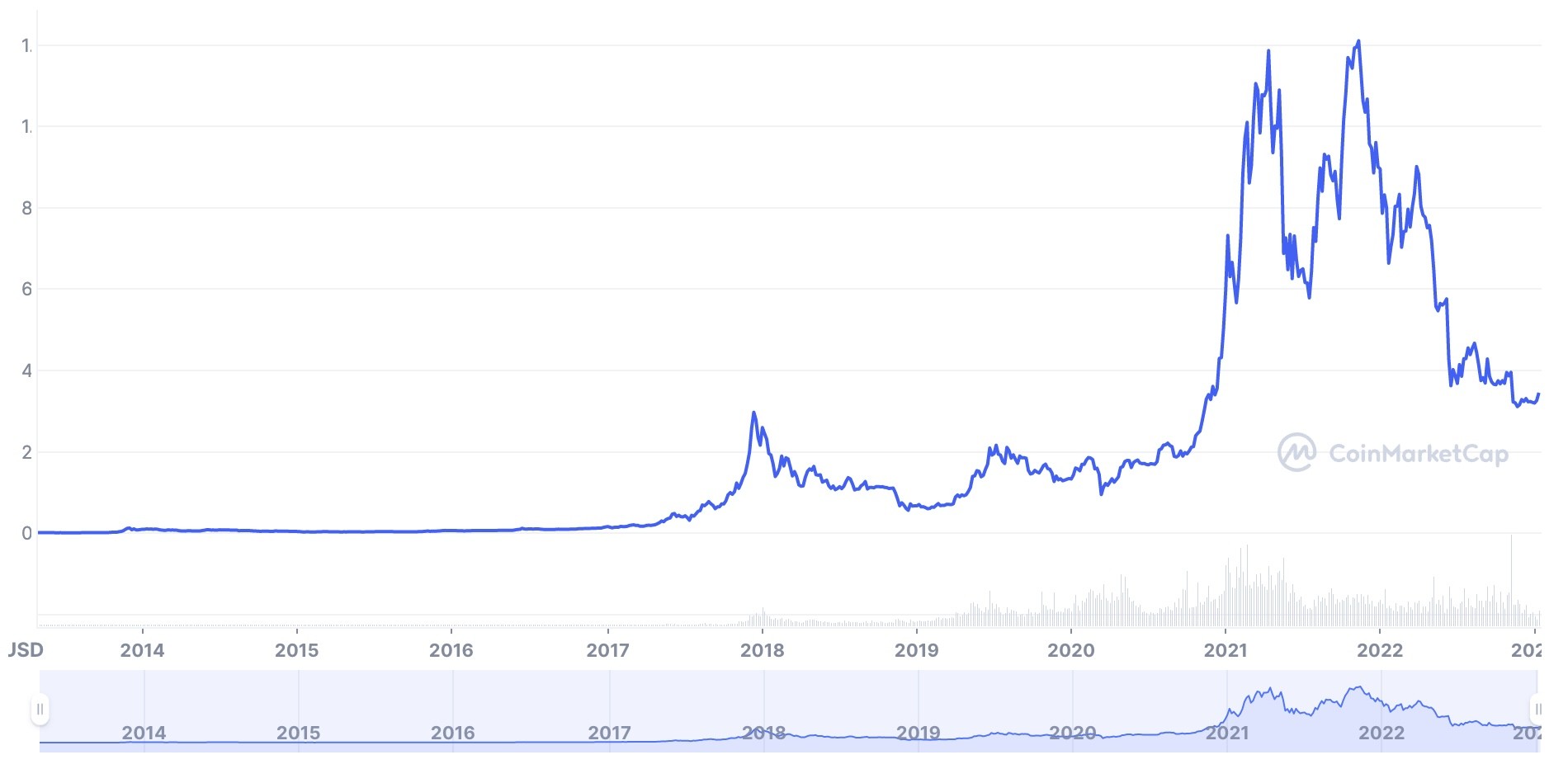From Bernie Madoff to Bankman-Fried: Bitcoin maximalists have been validated

Long before Bitcoin (BTC), Bernie Madoff sat atop the longest-running, largest fraud in history. The rise and real-time fall of Sam “SBF” Bankman-Fried, former CEO of crypto exchange FTX, were expedited in comparison. While the similarities are profound, the storyline is not: Create organizations under false pretenses, develop relationships with people in authority positions, defraud clients, survive as long as possible, and try not to get caught.
Madoff advisers experienced a “liquidity” problem in 2008, around late November into early December, where the fund was unable to meet client redemption requests. On its surface, the fourth-quarter timing of the Madoff collapse more than a decade ago appears eerily similar to FTX’s 2022 implosion. Bitcoiners who hold their keys will never experience a “liquidity problem,” as their Bitcoin isn’t being used to leverage anything else. It is the hardest money around as long as it stays in the custody of its rightful owner.
Even near the collapse, Madoff had planned to pay out $173 million in early bonuses to family and friends. When questioned by his sons on Dec. 9, 2008, Madoff confessed to the massive fraud. The numbers, in many instances, are fractions of the fraud FTX is accused of. Bitcoin maximalists continue to remind their communities that yield, third-party custodians and humans cannot be trusted. Satoshi Nakamoto’s white paper endures.
Madoff’s sons communicated, almost immediately, with an attorney, who advised them to contact federal authorities. Madoff was arrested on Dec. 11, one day after federal agencies were made aware of the fraud.
On Nov. 8, Binance CEO Changpeng Zhao announced on Twitter that he tentatively intended to purchase FTX, but he quickly reversed the decision, and a “liquidity” problem ensued at FTX. Bitcoin maximalists either watched idly, shaking their heads in disbelief — knowing it was a matter of time — or simply went on with their lives. Many maximalists might very well have been a part of Mt. Gox, which held approximately 80% of all BTC in circulation at the time it was breached. The “wake-up call” is an unfortunate initiation ritual for some Bitcoiners. FTX will mint many new Bitcoin maximalists.
In December, SBF was arrested in the Bahamas. As authors and researchers, we’re confident that correlations will be immediately identified and explored in regard to the timing of Madoff’s arrest on Dec. 11, 2o08.
As SBF faces extradition to the United States, based upon the “Treaty Between the United States and the Bahamas,” he faces sentence terms that may mirror Madoff’s, who faced a 150-year prison sentence for an arsenal of convictions. Those convictions included:
- 40 years for two counts of international money laundering
- 20 years for one count of securities fraud
- 20 years for one count of mail fraud
- 20 years for one count of wire fraud
- 20 years for one count of false filings with the Securities and Exchange Commission
- 10 years for one count of money laundering
- Five years for one count of investment adviser fraud
- Five years for one count of false statements
- Five years for one count of perjury
- Five years for one count of theft from an employee benefit plan
To provide some perspective, the longest sentences for recent financial fraud include, in order:
- Shalom Weiss (845 years)
- Norman Schmidt (330 years)
- Bernie Madoff (150 years)
- Frederick Brandau (55 years)
- A tie for fifth place between Charles Lewis, Eduardo Masferrer, Chalana McFarland and Lance Poulsen, who received 30-year sentences.
Based on the limited release documents at the time of publication, SBF may have his name included on the top five listed above — even potentially at or near the top. That would be fair considering that, among other allegations, his political donations may have impacted or influenced U.S. political elections.
Madoff’s prisoner number was 61727-054. Note that these oddly hyphenated eight digits weren’t representative of an account number, an SEC filing record or some secretive financial code; the numbers were Madoff’s former inmate number at Federal Correctional Complex, Butner.
If and/or when the time comes, SBF may be remembered by a similar numeric value instead of a cheeky three-letter moniker (“SBF”). Time will tell. Remember, Madoff pleaded guilty and still received 150 years, eventually dying while in custody.
Bitcoin > bribes
Let’s be clear: Not your keys, not your coins.
Stop giving your hard-earned money and Bitcoin to “trusted” third parties. Whether or not SBF spends a day in prison, or multiple lifetimes, the future of SBF means nothing to Bitcoin maximalists. In truth, if SBF walks free, the event will only confirm a greater Ponzi scheme that Bitcoiners are well aware of.
Bitcoin maximalists continue to preach, and events such as the collapse of FTX (among numerous other exchanges) are dire reminders of Nakamoto’s words that kicked off the introduction of Bitcoin’s white paper: “Commerce on the Internet has come to rely almost exclusively on financial institutions serving as trusted third parties. […] While the system works well enough for most transactions, it still suffers from the inherent weaknesses of the trust based model.”
There were and continue to be many lessons to be learned when examining the greed, lack of empathy and overall corruption humans have witnessed throughout history; and as events of this magnitude unfold, at the heart of every failure is trust — or a lack thereof.

Bitcoin’s market capitalization from 2013-2023. Source: CoinMarketCap
Bitcoin’s proof-of-work model — including but not limited to how transactions occur, timestamps are recorded, hash rates adjust, the network broadcasts nodes, incentives are rewarded, verification occurs and privacy is encoded — is the solution many Bitcoiners have come to take comfort in. The trust lies in the protocol rather than in individuals. Time and time again, a broken world and unscrupulous actors make the case for a trustless system.
No matter how well-regulated, designed or engineered future financial systems, exchanges or “cryptocurrencies” claim to be, they all have the same failure point: human nature and greed.
Bitcoiners realize this, and as many more become aware of financial fraud — whether impacted directly or indirectly — Bitcoin continues to emerge as the most obvious solution. SBF may teach a new generation of “investors” the same hard lesson learned by their parents: When something is too good to be true, it often is.
The failure of FTX is not a surprise, nor are the potential connections between SBF and high-ranking officials. The fact that punishments may not fit the crime(s) shouldn’t come as a surprise, either. In truth, maximalists realize that Bitcoin will be around long after the SBF dust has settled. Bring on the next Ponzi scheme — Bitcoin maximalists appear immune.
Kenneth Minesinger is a professor of law at California Baptist University. He obtained his J.D. from Western State University College of Law after completing his undergraduate career at California State University at San Bernardino.
Dr. Riste Simnjanovski is a professor of public administration at California Baptist University. He obtained his doctoral degree from the University of La Verne.
This article is for general information purposes and is not intended to be and should not be taken as legal or investment advice. The views, thoughts and opinions expressed here are the author’s alone and do not necessarily reflect or represent the views and opinions of Cointelegraph.






 Bitcoin
Bitcoin  Ethereum
Ethereum  Tether
Tether  USDC
USDC  TRON
TRON  Dogecoin
Dogecoin  Cardano
Cardano  Bitcoin Cash
Bitcoin Cash  Chainlink
Chainlink  LEO Token
LEO Token  Monero
Monero  Stellar
Stellar  Zcash
Zcash  Litecoin
Litecoin  Hedera
Hedera  Dai
Dai  Cronos
Cronos  Tether Gold
Tether Gold  OKB
OKB  Ethereum Classic
Ethereum Classic  KuCoin
KuCoin  Cosmos Hub
Cosmos Hub  Gate
Gate  Algorand
Algorand  VeChain
VeChain  Stacks
Stacks  Tezos
Tezos  TrueUSD
TrueUSD  Dash
Dash  IOTA
IOTA  Basic Attention
Basic Attention  Theta Network
Theta Network  Decred
Decred  NEO
NEO  Synthetix
Synthetix  Qtum
Qtum  Ravencoin
Ravencoin  0x Protocol
0x Protocol  DigiByte
DigiByte  Zilliqa
Zilliqa  Siacoin
Siacoin  Nano
Nano  Holo
Holo  Numeraire
Numeraire  Waves
Waves  Status
Status  Ontology
Ontology  Enjin Coin
Enjin Coin  Hive
Hive  BUSD
BUSD  Pax Dollar
Pax Dollar  Lisk
Lisk  Steem
Steem  Huobi
Huobi  OMG Network
OMG Network  NEM
NEM  Bitcoin Gold
Bitcoin Gold  Augur
Augur  Bitcoin Diamond
Bitcoin Diamond